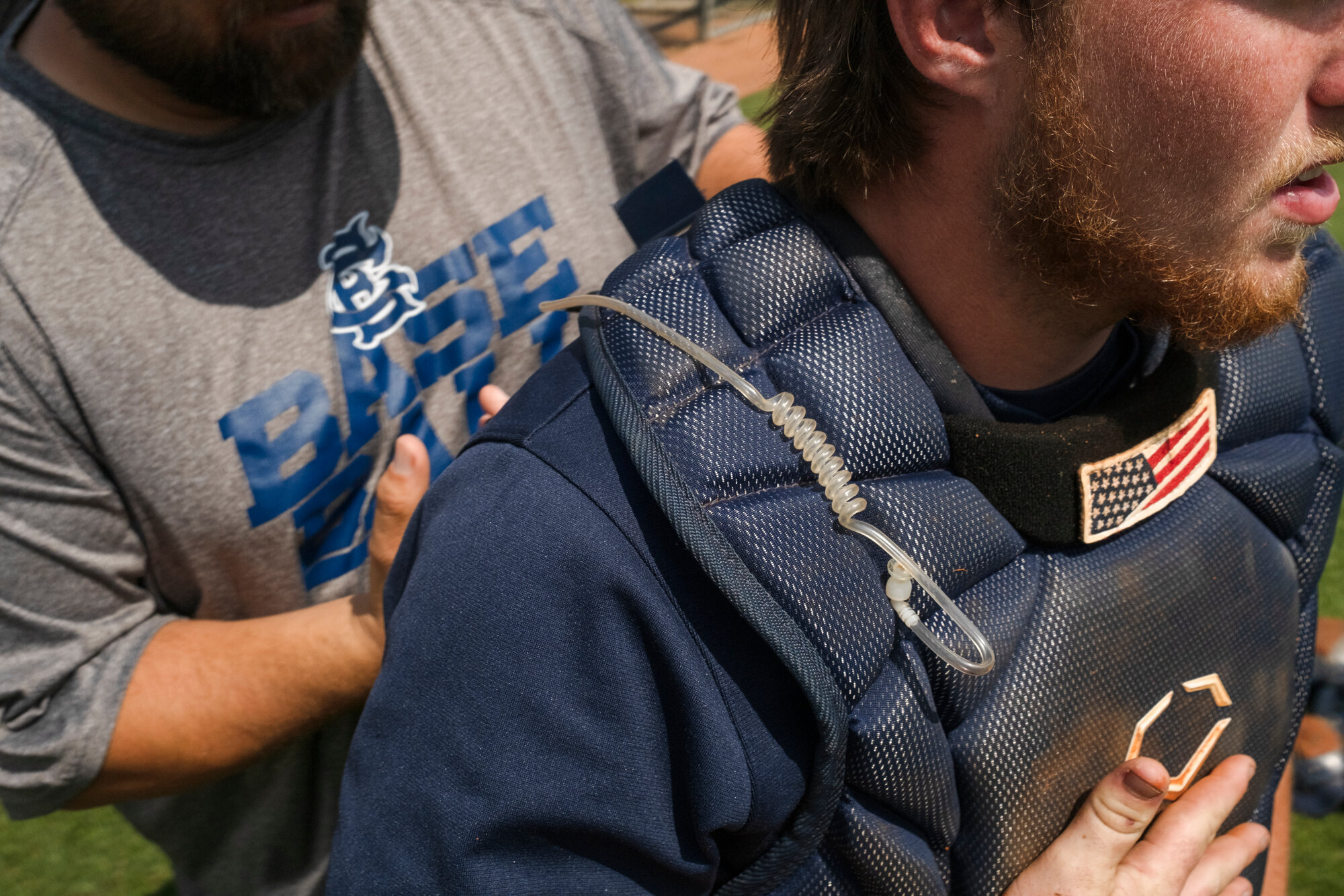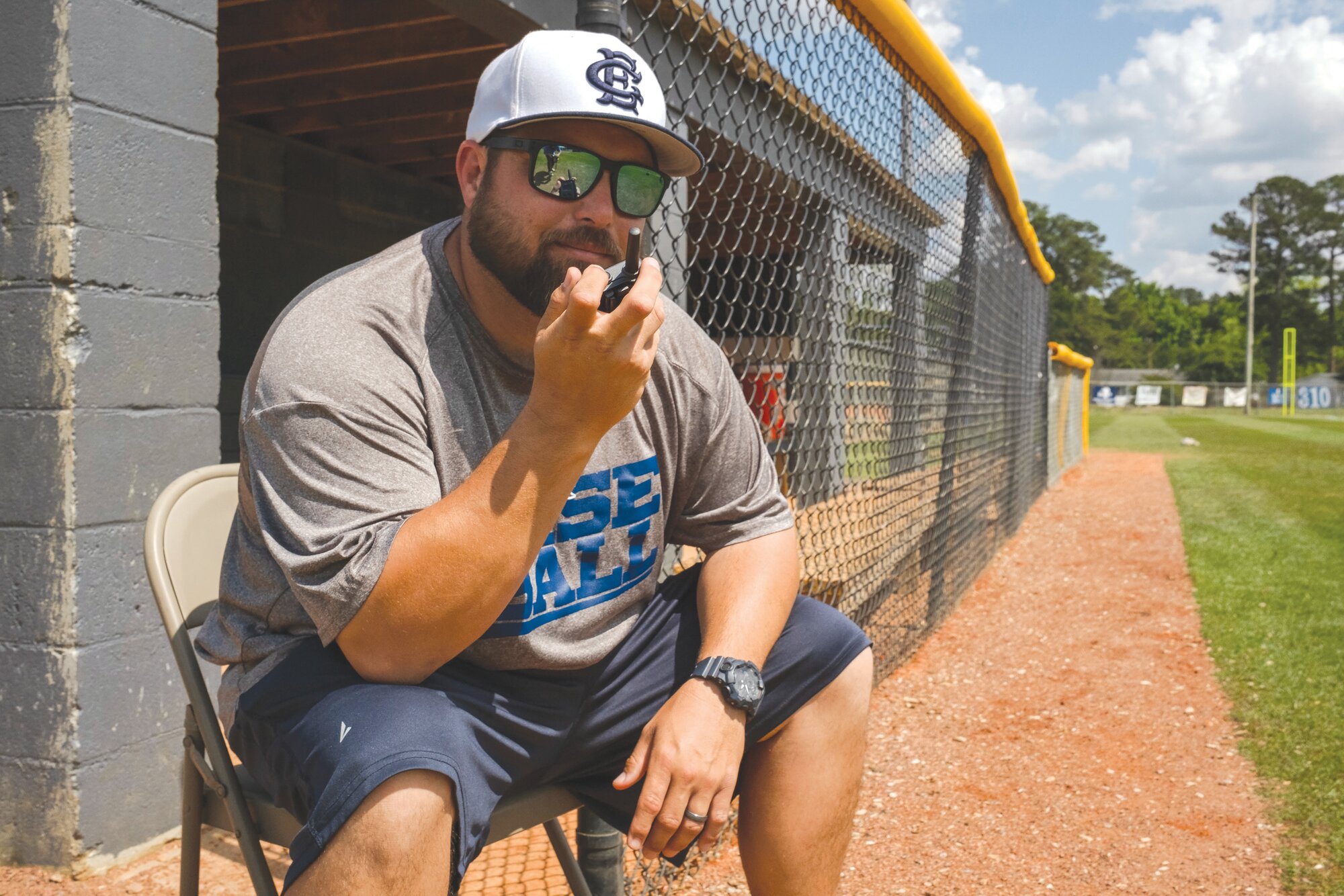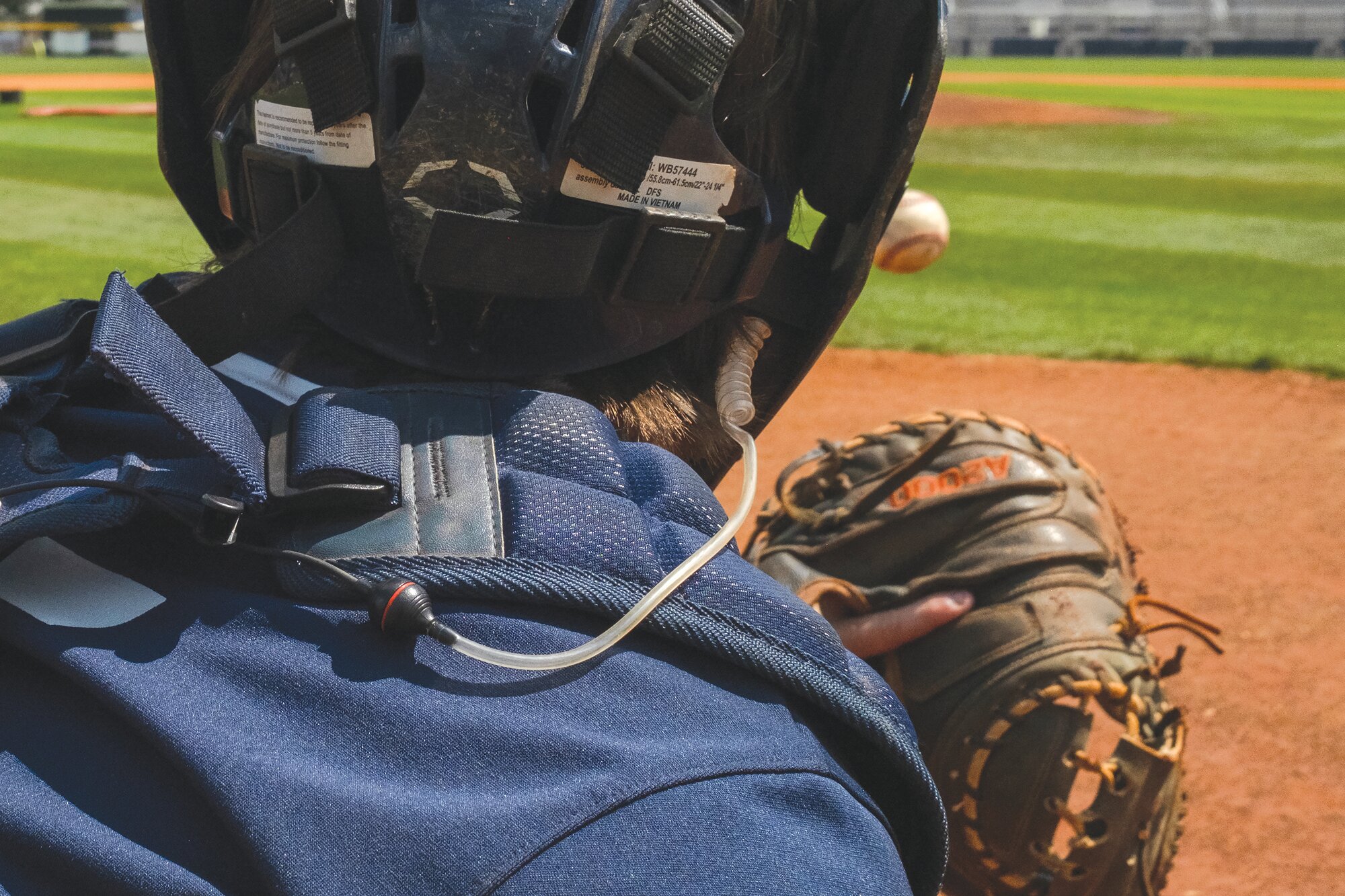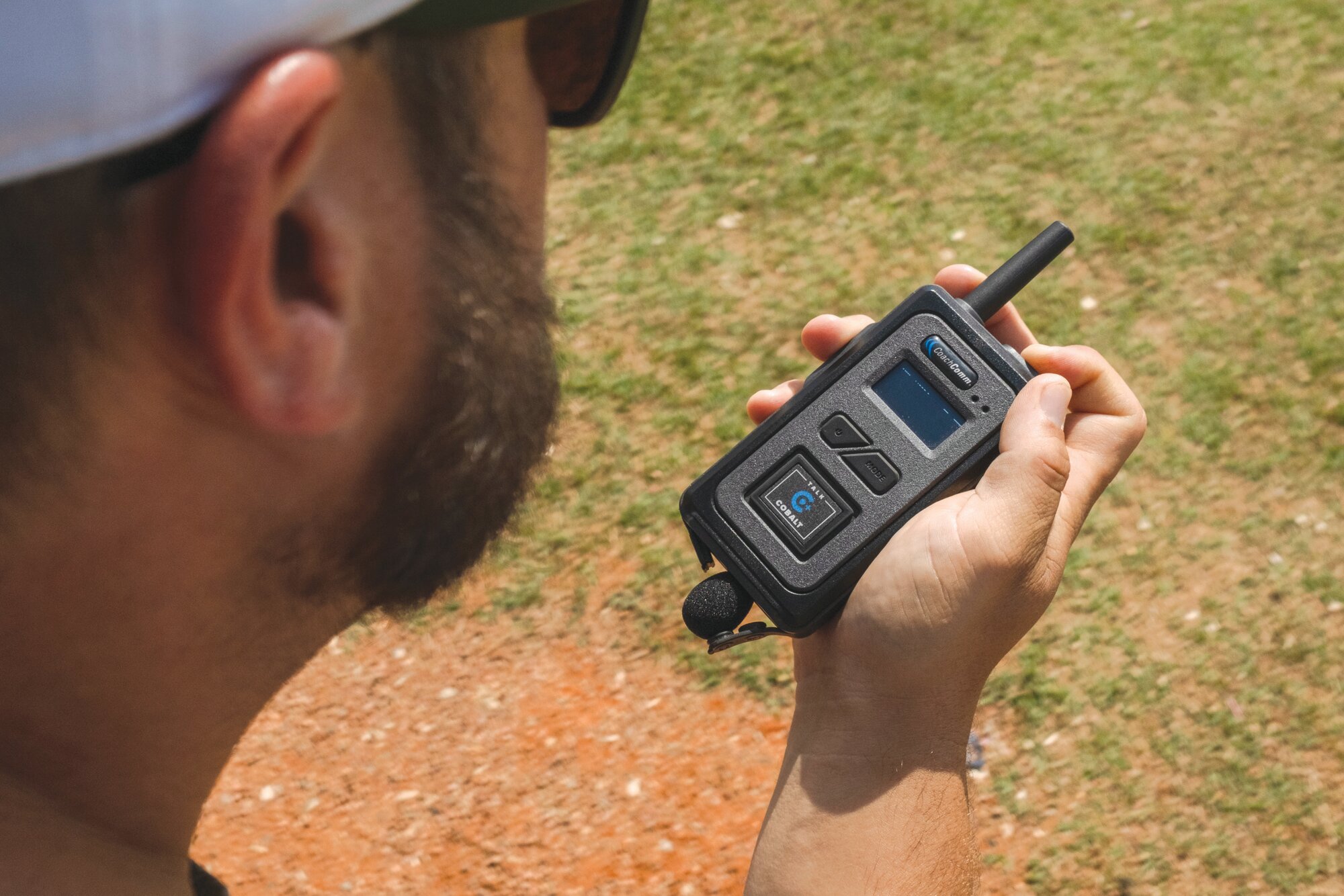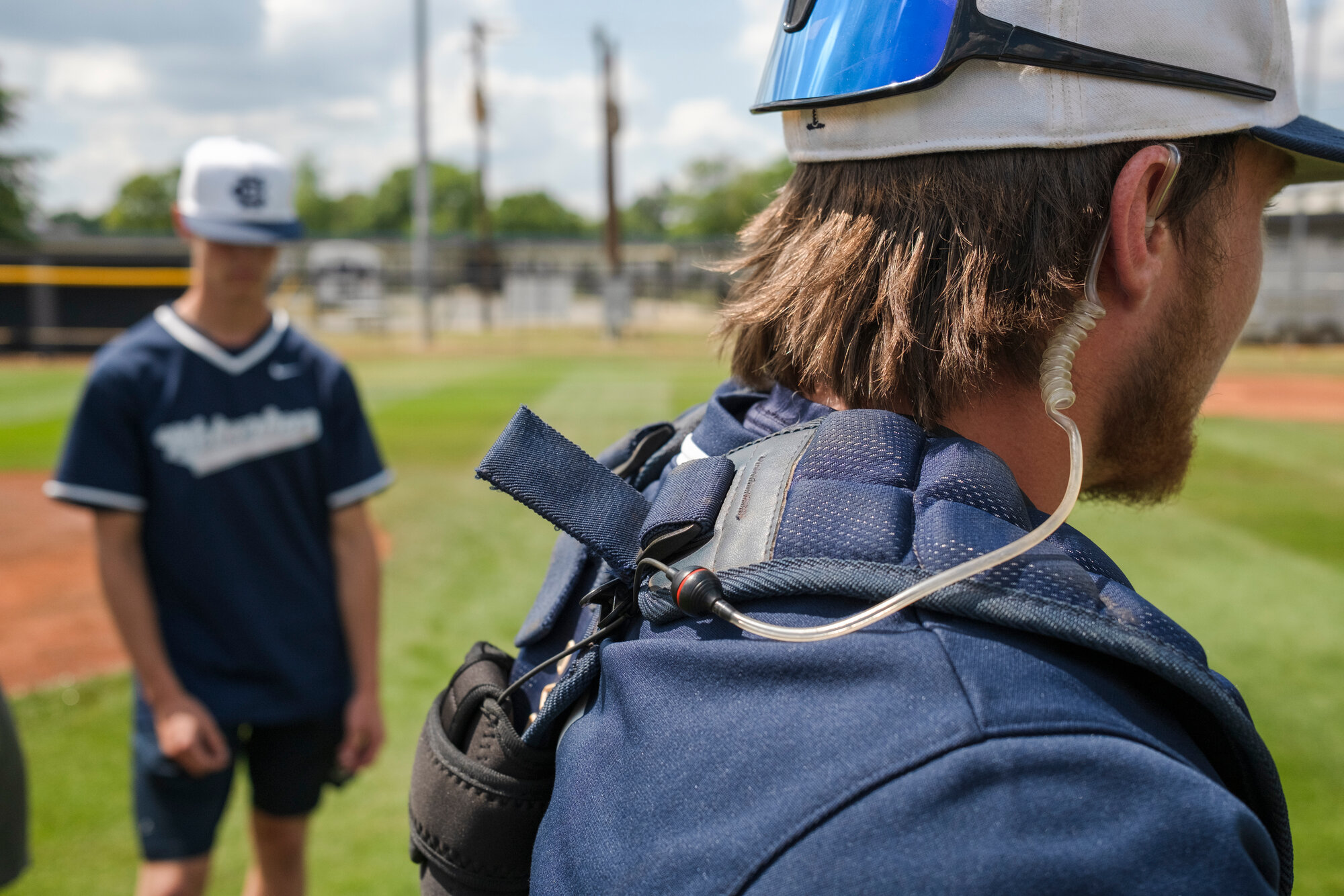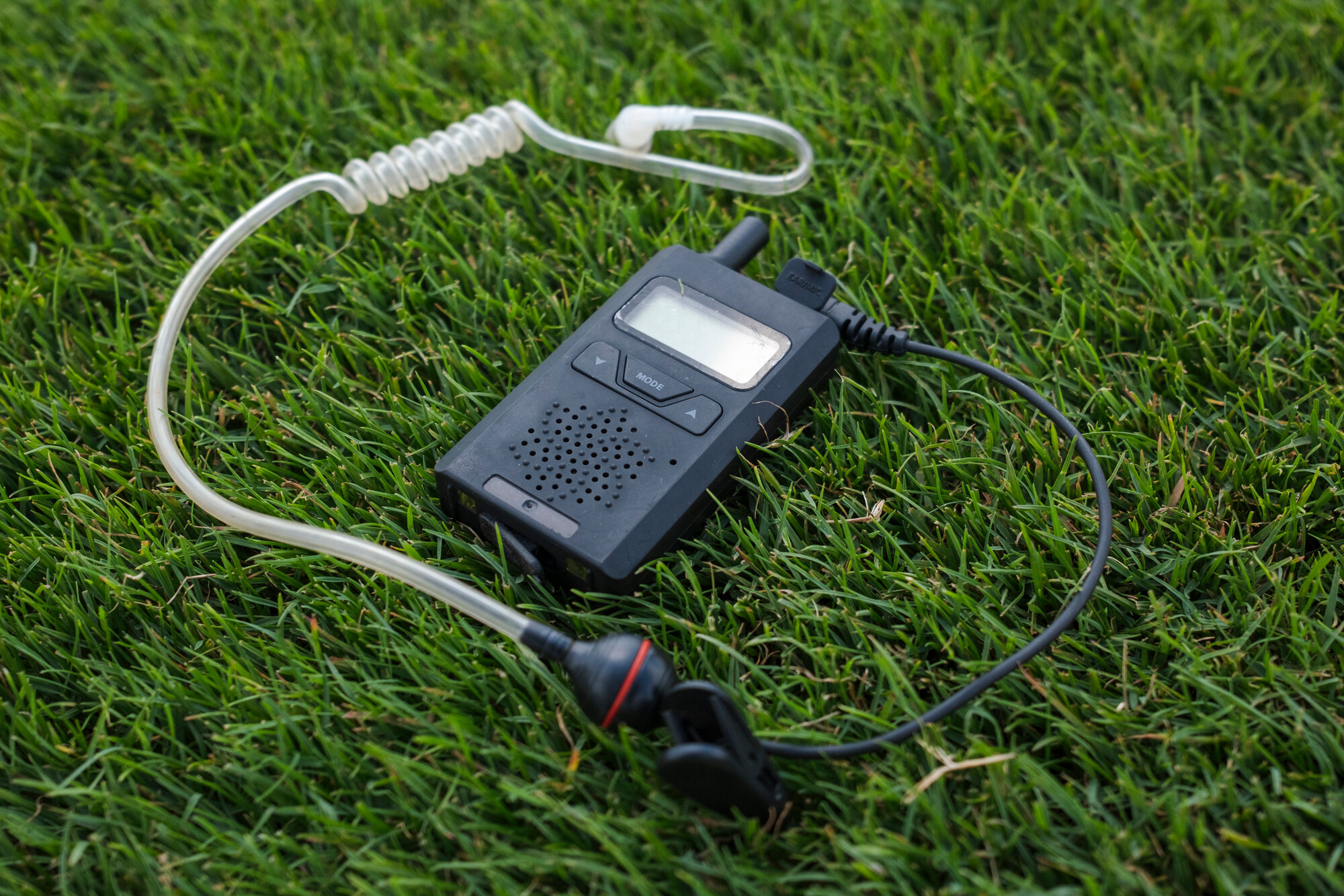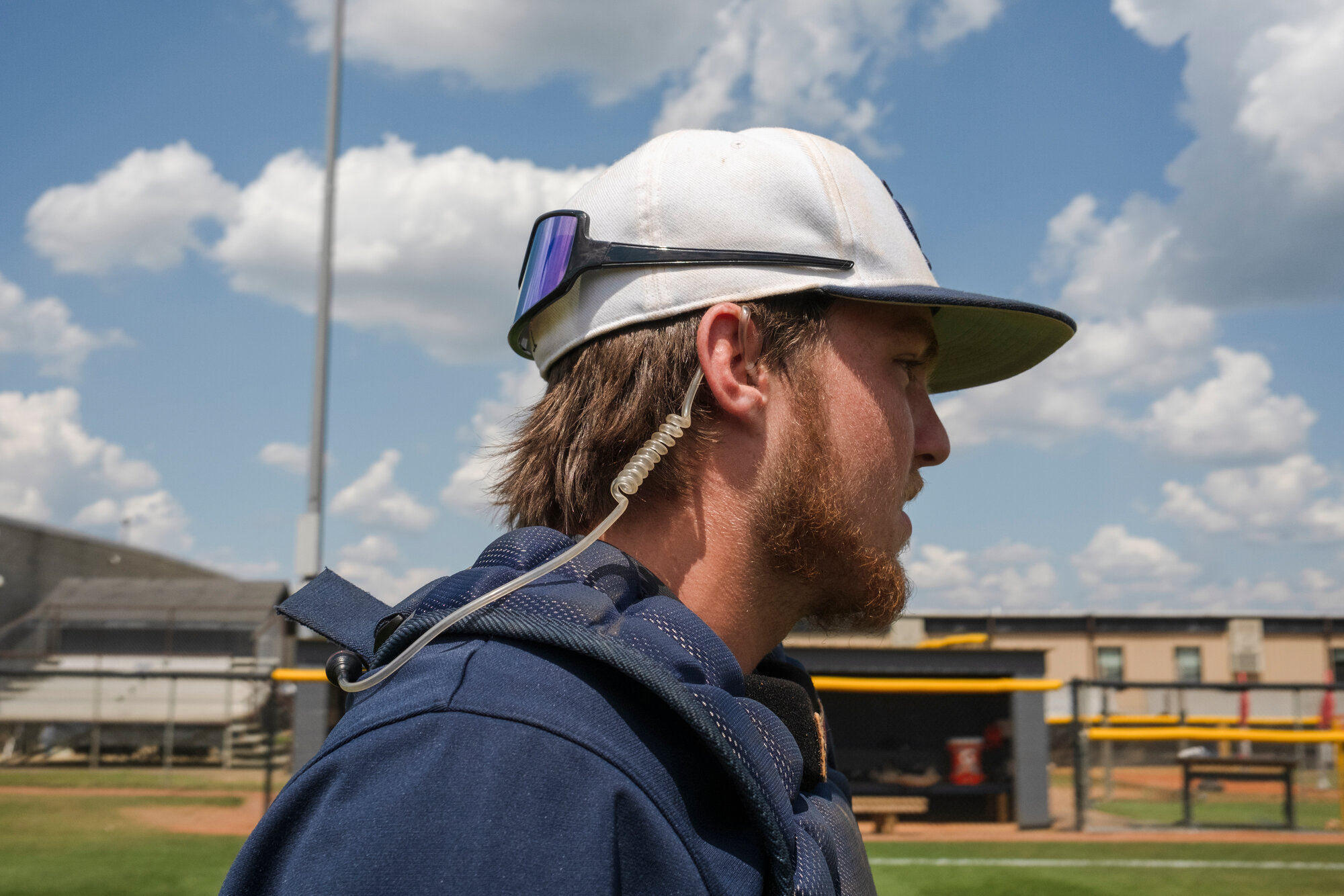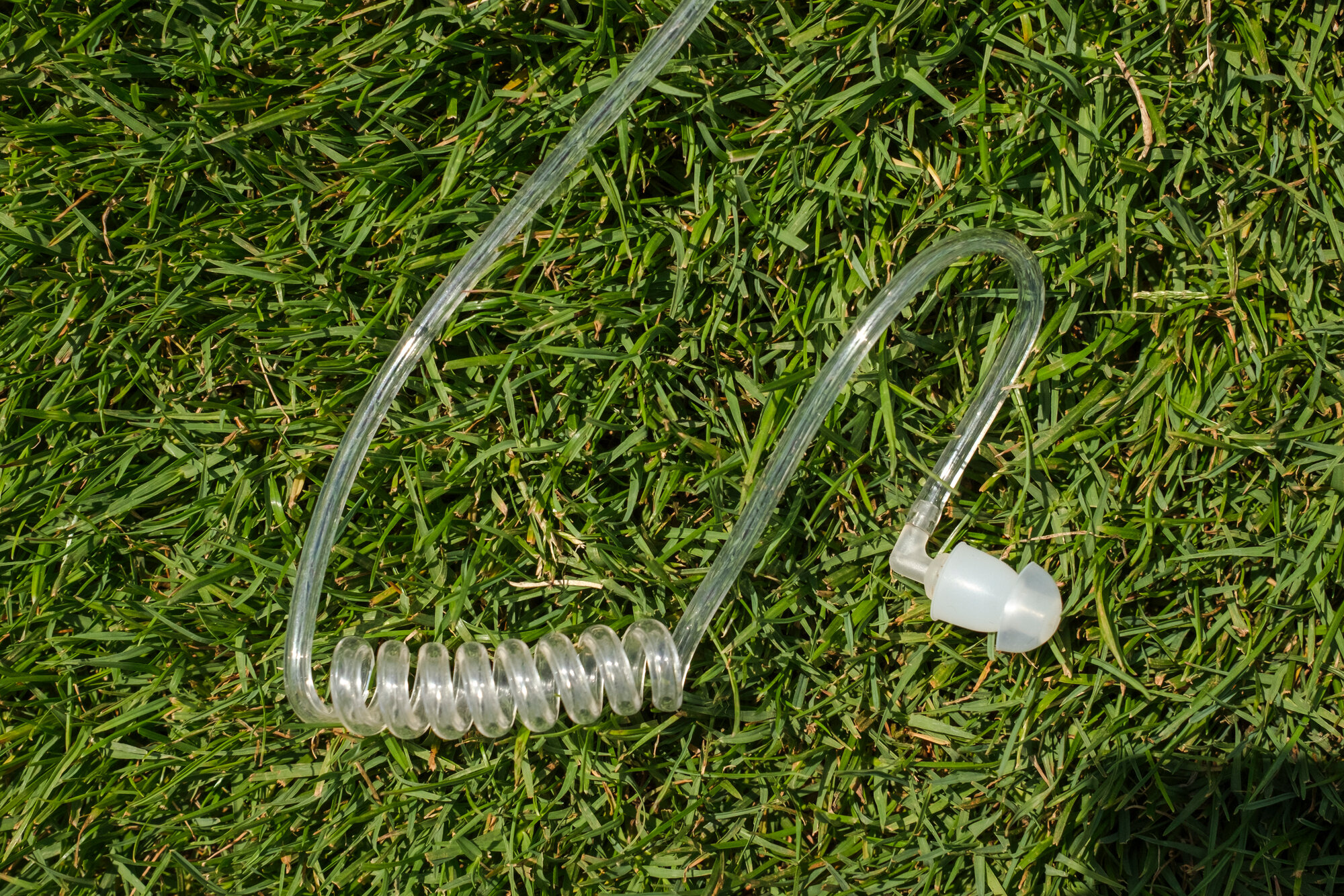Communication technology makes life easier for high school pitchers, catchers
tim@theitem.com
Baseball is a sport that is often accused of being incapable of keeping up with the times.
America's pastime hasn't been keen on integrating technology, especially at the high school level. Apps like GameChanger became a life-saver for people wanting to keep up with their favorite teams when they aren't able to make it to the ballpark. On the field, it's always been a mix of hand signals and wristbands containing coded instructions that coaches can shout for the team to hear.
That changed this spring.
South Carolina baseball teams were approved to use communication devices at the high school level. If you make your way to a ballpark, it's now common to see a coiled wire hanging out of the helmet of a catcher, attached to a device on their back.
That technology has trickled down from the upper levels. Colleges have been able to use earpieces since 2018. Professional baseball started moving ahead with advanced PitchCom devices in 2022, which input pitch commands straight to pitchers, avoiding the need for signals behind the plate altogether.
Out at East Clarendon, these new communication systems have made life exponentially easier for head coach Curtis Johnson, catcher KJ Floyd and the Wolverine pitching staff.
"I think it's awesome because it gives us the opportunity to speed the game up," Johnson said of the CoachComm system they use at EC. "I'm able to communicate very quickly with KJ. We use it with all three programs because I felt like if a guy came up to JV or varsity, I want him to know.
"It allows you to kinda be in their ear and run through what you're trying to do from a pitching standpoint. I really enjoy it because you don't miss signs. You have to repeat stuff every now and then but, for the most part, the technology has worked well for us."
As a former collegiate pitcher at Florence-Darlington and South Carolina, Johnson knows the art behind the position. Now that he has open communication with his catcher, Johnson is able to give more specific instructions with each pitch.
"I'm able to go fastball outer-half or fastball off the plate away; you have to get it off the plate here," Johnson said. "I'm able to add those little one-liners for (Floyd) to understand. He's great behind the plate for us. He's a leader, and he understands what I'm trying to do. I feel like he's a microcosm of me out there. He knows how I want to do it, and this just makes it that much easier."
Floyd loves having that extra level of detail from his head coach.
"He's not just telling me where to pitch, he'll tell me where to set up and everything else," he said. "It's a lot easier than reading a card or looking at my wrist and trying to find a pitch. It's just in my ear."
The Wolverine pitchers also have more confidence because Floyd is able to take full command of each at bat.
"It's helped a lot with the pitchers. It's more like me taking leadership with them and having them put it where I want it, so the more talking I do, it's a lot better," Floyd said. "With this, I know where to set up, and I can get them to throw it there with me talking to them and getting in there."
The technology itself is relatively simple. Floyd has a small device hooked onto the back of his chest protector on the top straps. He then connects an earpiece. Johnson then uses a walkie-talkie for one-way communication. It was a pretty seamless transition for Floyd.
"I was more worried about it getting in the way, but it just rode in right with us," the senior catcher said. "It actually made me feel a lot better."
The Wolverines were early adopters, so they had a ton of practice with the technology before games began.
"We were lucky. We got it early, so we used it during the preseason. We used it during bullpens some, and we used it in our preseason intersquad before our scrimmages," Johnson said. "It was something we used a good bit, and KJ adapts to about anything, so he was good."
It hasn't always been perfect, of course. That earpiece has gotten unplugged more than once. Luckily, it's a pretty simple fix for one of the EC coaches to run out and get Floyd back online.
"When we played in Columbia at White Knoll (for our preseason tournament), a lot of it happened," Floyd said of getting unplugged. "If it's too tight and I throw one good, it'll come off, but we just come back and fix it and move on."
This will be Floyd's one and only season with the technology, but he's glad that future catchers will be able to embrace the chance to communicate with their coaches from here on out.
"It makes the game go by a lot faster. You don't have to sit there worrying about if you're doing something wrong or not," Floyd said. "It makes the flow a lot easier, and it keeps the pitcher in a rhythm. I can sit there and get the pitch call, and we can roll."
More Articles to Read

